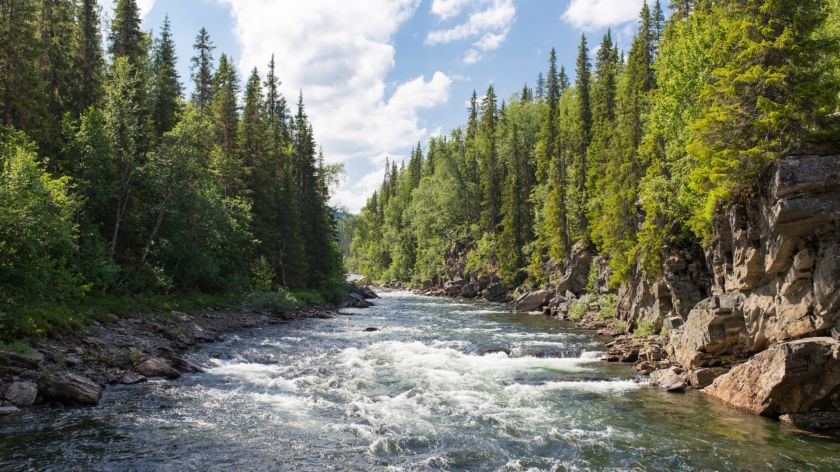Should we grant rights to nature? ‘It is an effective tool’
-
 Foto ter illustratie. Via Unsplash
Foto ter illustratie. Via Unsplash
Pollution, climate change, construction – because of human intervention, nature often suffers. Therefore, some countries grant rights to nature. How does that work exactly? And is it a good idea? On Monday night, Radboud Reflects organised a lecture on the topic. Five questions for law philosopher and speaker Sophie de Vries.
In 2017, the Whanganui River in New-Zealand became the first river in the world that could sue polluters. Māori, the original inhabitants of New-Zealand, had been fighting for years in order to grant rights to the river, which is strongly intertwined with their lives. ‘That river now has the right to be’, says law philosopher Sophia de Vries. ‘That is a right to exist, just like we have the right to live. In practice that means, among other things, that the river cannot become property – the Whanganui River owns itself – and that you can’t just intervene in its ecosystem. The interests of the river are always weighed.’
The Whanganui River is an example of a broader phenomenon: granting rights to nature. That is not only happening in New-Zealand, but also in Ecuador, Bolivia, India, and the United States. On Monday night, De Vries gave a lecture on the topic at Radboud Reflects.
Shouldn’t you be a person to have rights?
‘No, that is not necessary at all. Companies, for example, also have rights, even though they have no free will, cannot think about what was done to them, and were created by us humans in the first place. And the fun thing about laws is that we also made those up ourselves. So if you are eager enough, you can do exactly what you envision with it. You just have to be open to it.’
How is that in your area of expertise? Are people open to it, of do researchers find it an unrealistic idea?
‘Most people think it is weird. Obviously, it is a big change, so it takes some getting used to. Sometimes I end up in a research bubble where everyone is a supporter of granting rights to nature. On the other hand, there are also researchers who agree with us that we should protect nature, but who find it nonsense to grant extra rights. That group thinks: we already have enough judicial tools. We can criminalize pollution, better enforce the law, or protect nature based on the human right to a healthy environment.’
So what would be added by granting rights to nature?
‘It is a very effective tool. Suppose there are plans on the table to build a dam in a river to generate electricity. Normally, people can let us know what they think of such a plan, and then all sorts of factors are considered: human rights, the working conditions of the people building the dam, the impact on local residents. But there are a lot of other creatures around that river that are protected by nothing and no one. In New Zealand it proved very effective to grant rights to the Whanganui River: the river and its ecosystem are always represented in decision-making.’
‘Philosophically, there is also another reason. When we grant rights to you, we are actually saying: you have an inherent value. Nature, according to some, also has an inherent value, and you could say that nature therefore deserves rights. That, of course, is a very different way of thinking, because at the moment we often think of nature as something functional. If we grant nature rights, we should also protect the parts of nature that serve no function for humans.’
Nature cannot speak for itself. What would the representation of a river or lake look like in practice?
‘That is indeed an additional obstacle. But companies can’t just go to court on their own either. Just like children, some people with disabilities, people with dementia, or people who are in a coma. They are also represented by someone else. So the principle of representation is not foreign to us. It just needs to be extended to nature.’
How would a representative determine what nature’s interests are?
‘It is very difficult to figure out what nature wants. For example, what is good for the wolf is not necessarily good for other animals. Nor for humans, who may feel threatened by the wolf. But such clashes are actually not bad at all. It is as if we have become a bit afraid of conflict in law, but the law is actually meant to streamline conflicts. It does not remove conflicts, but guides parties in the right direction.’
Translated by Jan Scholten.




